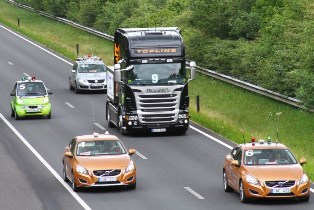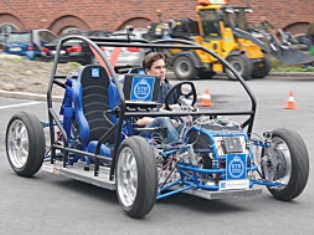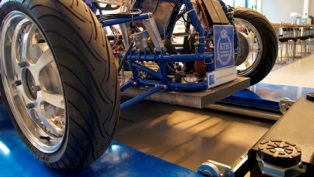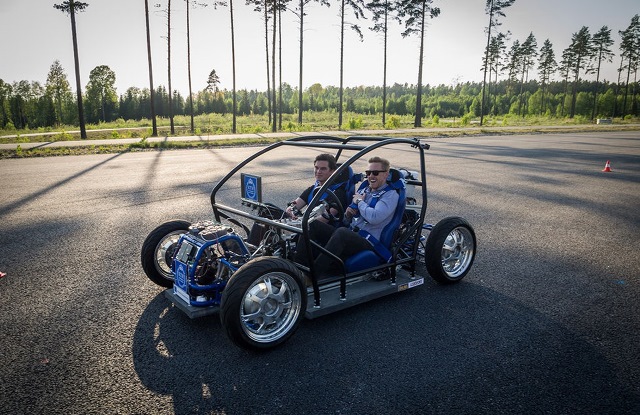Preparing for the GCDC 2016!
KTH's Team in the Grand Cooperative Driving Challenge

The Grand Cooperative Driving Challenge is an international event hosted by the partners in the i-Game project and supported by the European commission. The purpose is to demonstrate a combination of vehicle automation and vehicle-to-vehicle / vehicle-to-infrastructure communication. On the 28-29th of May at a research facility in Helmond in the Netherlands, university teams will be challenged to perform cooperative driving manoeuvres with prototype vehicles.
KTH has two vehicles in this year's competition: a Scania truck and the KTH Research Concept Vehicle which has been built and maintained by the Integrated Transport Research Lab, ITRL.

"The decision to participate within the RCV platform presented it's own set of challenges, in addition to building the cooperative driving functionality," says Stefanos Kokogias. "A new battery system had to be mounted in order to get sufficient range for the competition scenarios. We had to build an automated braking system more or less from scratch, and there have been many other smaller fixes and tweaks needed in order to get the RCV approved for the competition."

In late March, the RCV and four members of the KTH team travelled to Barcelona for mandatory safety testing at the IDIADA facility. Although a slightly ad-hoc warning light system had to be hastily installed before they were even allowed onto the tracks, the RCV was eventually approved by a professional test driver. Afterwards he told the team "This is the strangest vehicle I have ever driven!" - referring to the front-and-rear by-wire steering.

"Being the only non-conventional vehicle, and because of its inherent originality, the RCV draw a lot of attention during our time in IDIADA," says Lars Svensson. Xinhai Zhang adds "Many people took the opportunity to drive it and we got a lot of wide smiles in the process." The IDIADA workshop offered ample opportunities for the teams to test their systems as well as to exchange stories and experiences with other universities, and make new friends.
By the end of April, the participating Swedish teams will conduct collaborative testing hosted by the Asta-Zero test-track . By then the team is expected to have most of the functionality for the competition in place.

